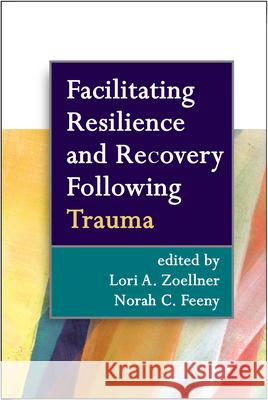Facilitating Resilience and Recovery Following Trauma » książka
Facilitating Resilience and Recovery Following Trauma
ISBN-13: 9781462513505 / Angielski / Twarda / 2014 / 346 str.
Contrary to popular belief, resilience is the norm following traumatic experiences. What enables most trauma survivors to heal over time, without intervention? For those who struggle with ongoing posttraumatic symptoms, how can clinicians tap clients' innate resources for recovery? This volume brings together prominent experts to explore processes of resilience and recovery after trauma. Synthesizing state-of-the-art research, the book highlights the implications for natural recovery and treatment. Authoritative and accessible, it features real-world case examples and clear clinical recommendations. The book identifies key principles that promote recovery, with a focus on modifiable risk and resilience factors such as avoidance, memory encoding and retrieval, cognitions and beliefs, disclosure, dissociation, pain, and social support. Contributors trace the role of these factors in both natural and therapeutic recovery and demonstrate ways to target them effectively. Guidance about when not to intervene - to stay out of the way of natural recovery - is also provided. The book addresses issues of timing, examining what works and what doesn't work both in early intervention and in treatment of chronic posttraumatic symptoms. Chapters on specific populations probe risk and resilience processes in children, military personnel, and low socioeconomic status or marginalized communities. The book shows that many survivors rebound in the aftermath of trauma -even in the most vulnerable populations - and carefully tailored therapeutic interventions can play a vital role. This cutting-edge work provides indispensable knowledge and practical tools for clinical psychologists, clinical social workers, psychiatrists, psychiatric nurses, and counselors who work with the general population or with military personnel and first responders; as well as trauma researchers, public health professionals, and graduate students.











